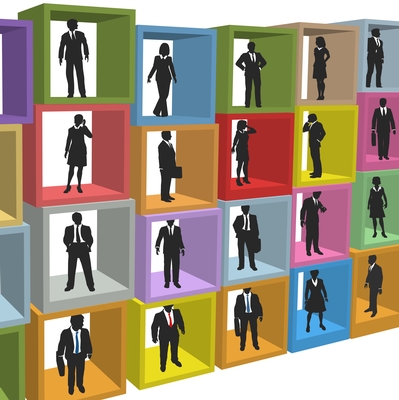Do you ever wonder how the new college graduates will impact the workforce?
As an adjunct professor and a part-time IT recruiter, LiquidPlanner contributor Andy Makar regularly interacts with the budding workforce of our future. The Millennial generation (aka the Facebook generation) represents a technically connected group of people who collaborate, are entrepreneurial-minded, and work at a much faster pace than previous generations.
In this LiquidPlanner Q&A, Andy gives us his instructor’s perspective about the impact today’s students will have on tomorrow’s corporate culture.
Q: What is a key difference you notice in how your students prepare for work after college?
A: More students are already in the working world while pursuing their undergraduate and graduate degrees. According to a study by Pew Research, one out of every four Millennial students is working while enrolled full-time in school. Based on my recruiting experience, many of these students are working in their field of study while pursuing their academic degree.
Technology has also helped students become solopreneurs and innovators while pursuing their education. The startup costs to form a technology-based business are low, and there are a lot of opportunities in consulting, mobile application development and traditional website development. One student I interviewed showed me his “Rate My Beer” mobile app – something he developed while in school. He was already generating an income from local microbreweries advertising with this – all this before getting a full-time job.
Today, more graduating students not only have real world experience but they’re turning ideas into working software solutions and profiting from them. Just look at 17-year-old Nick D’Aloisio who sold his Summly news application to Yahoo for $30 million. Startups emerge as students put academic theory directly into practice at school and into their own endeavors.
Q: What will this generation do for business and industry in the future?
A. This generation of workers will change the way we collaborate and communicate on projects. In my classes, students are connected with their laptops, iPads and smart phones and often operate multiple devices while “participating” in the class lecture or classroom exercise. Instead of the phone, many students (and instructors) prefer to use email to communicate and many resort to texting their professors. In addition to working with their peers on a project, this generation will leverage their social networks to solve problems.
For example, I’ve seen situations where students collaborate with friends in other countries to help them with their assignments. In the academic world, students learn that presenting someone else’s work as their own will earn them a failing grade. However, this collaboration practice is legitimate, and shows how a social network has become the new problem-solving tool.
Q: Does this Millennial generation work at a different pace than its predecessors?
Yes, they expect faster iterations of project lifecycles. Which will result in faster product lifecycles and a stronger focus on collaborating to solve problems using the social tools at their fingertips.
Q: How should businesses adapt to this new generation?
Businesses have to let teams use social network technology in order to collaborate better. I know some businesses actively block YouTube, Facebook and Twitter from their corporate firewalls. This is a mistake. The workforce is shifting to use these tools to engage with the community at large – and this contributes to solving business problems
Q: How are businesses already adapting for a more collaborative work culture?
I see the collaboration trend with several co-working spaces opening in the Detroit area. Startup companies can rent a desk space or a conference room and work amongst other startup businesses. This environment shares overhead costs and encourages collaboration across small teams. In these environments, the typical currency is goodwill and bartering skills, rather than money.
The focus on collaboration is also making its impact on the larger traditional businesses. As office buildings are renovated, businesses are incorporating coffee house features by providing larger lounge environments equipped with plenty of power plugs, comfortable seating and plenty of room to break out and solve problems together. These environments become much more productive than the mundane world of the three-wall desk. If given the choice, I’d rather work in a coffee house environment where I have a comfortable working area rather than searching for my business partner in a sea of cubicles.
Q: The Baby Boomers saw the demise of the 30-year company man/woman. What will the Millennials’ career trajectory look like?
I expect the new workforce will challenge the traditional management structure to provide more challenging and rewarding career paths. The new generation of workers is willing to change jobs easier and recognize the fact that the company they work for today will not be the company they work for in a few years. The churn in talent will force stoic organizations to examine how they develop employees. If the organization doesn’t change, the Millennial employee will be more than happy to look for a new job.
I spoke with one of my younger colleagues who, after three years of working for a stable Fortune 100 company, decided to simply quit. After giving his two-week’s notice, he realized he had two weeks before he ran out of money. So he formed his own software company. One year later, with a business partner and a lot of hustle, he is developing software solutions for Fortune 500 companies and working in Italy for three months with MacBook in hand.
Bob Dylan was right – in 1964 and still, today: The Times They Are a-Changin’!
What do you think?
As fellow professionals how would you answer these questions? What are you seeing in your own workplace as the younger generation begins to work on your projects? Share your comment, below – we’d love to hear from you.









